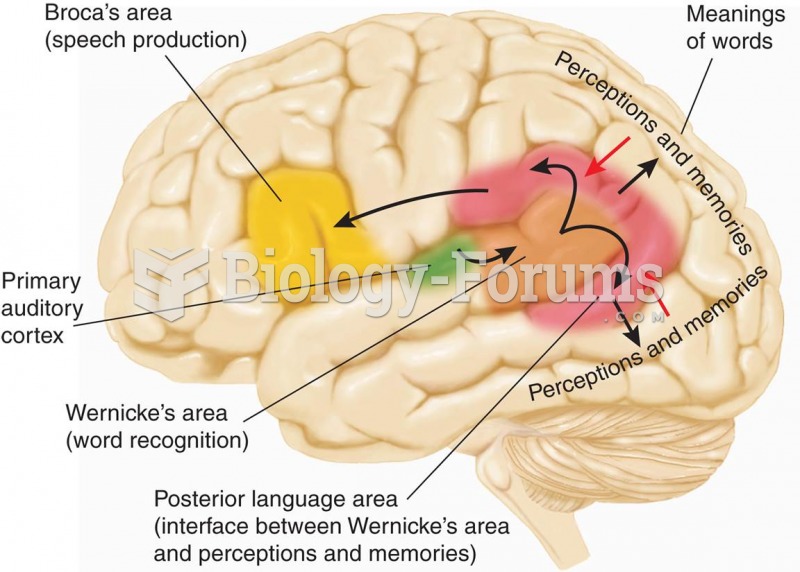This topic contains a solution. Click here to go to the answer
|
|
|
Did you know?
More than 30% of American adults, and about 12% of children utilize health care approaches that were developed outside of conventional medicine.
Did you know?
Amoebae are the simplest type of protozoans, and are characterized by a feeding and dividing trophozoite stage that moves by temporary extensions called pseudopodia or false feet.
Did you know?
Multiple experimental evidences have confirmed that at the molecular level, cancer is caused by lesions in cellular DNA.
Did you know?
Every 10 seconds, a person in the United States goes to the emergency room complaining of head pain. About 1.2 million visits are for acute migraine attacks.
Did you know?
Persons who overdose with cardiac glycosides have a better chance of overall survival if they can survive the first 24 hours after the overdose.
 Multiple sclerosis (MS). (a) A disease characterized by the gradual development of small areas of ha
Multiple sclerosis (MS). (a) A disease characterized by the gradual development of small areas of ha
 Major moons of Uranus in order of increasing distance (left to right), at their proper relative size
Major moons of Uranus in order of increasing distance (left to right), at their proper relative size





